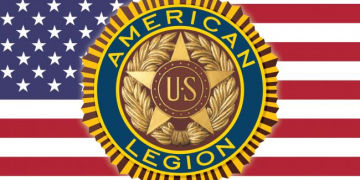By Iska Hoole, Legal Aid Society
Not everyone can relate to the challenges of people with criminal records or view them as a vulnerable population. Their struggles often go unseen or are misunderstood. Some Tennesseans may not realize that they themselves are likely to have a neighbor, co-worker, friend or family member with a criminal record.
In fact, as the Wall Street Journal reported in 2015, around 1 in 3 Americans has been arrested at some point during their adulthood. It is in everyone’s best interest that this section of our population succeed.
However, the reality is that a criminal record — anything from a minor infraction to a period of incarceration — can have long-lasting repercussions that follow a person throughout their life, sometimes even decades after they have paid their debt to society.
Answering “yes” to previous felony or misdemeanor convictions on a job application will immediately take a candidate out of the running for many employers. When seeking housing, landlords typically run background checks on potential tenants and will often opt against renting to someone with a criminal record — particularly in a city like Nashville, where affordable apartments are in high demand. Some people with criminal histories may also be ineligible for a driver’s license, which severely limits their ability to travel to a job. In rural counties with few transportation options, this is an even larger hurdle.
According to the Prison Policy Initiative, people who were formerly incarcerated are 10 times more likely to be homeless and have an unemployment rate of 27%. With few opportunities or options, hope can be lost and many people eventually break the law again and are reincarcerated. Tennessee has one of the highest recidivism rates in the U.S., with 47.1% reoffending within three years, according to state data.
Overcoming barriers to re-entry
People with criminal histories deserve a chance to rebuild their lives without unnecessary obstacles standing in their way. Since 2015, Legal Aid Society’s re-entry program has been helping clients to remove these barriers so that they can reach their goals. This is good for our clients and good for society. Our attorneys provide free assistance for qualified residents with issues like driver’s license reinstatement, certificates of employability for private employers and state licensing, civil rights and voting rights restoration, as well as criminal record expungement.
Expungement is a process that essentially erases the legal record of an arrest or criminal conviction. Although it doesn’t forgive a person for committing a crime in the way that a legal pardon would, it does treat a previous conviction as if it had never taken place. For people seeking a job, housing, or enrolling for public assistance, having previous offenses expunged from their record can be enormously beneficial.
Only certain nonviolent convictions qualify for expungement — and any guilty conviction is going to be much harder to expunge than an arrest that did not result in sentencing. Arrests that did not result in sentencing (criminal charges), on the other hand, are usually simple to have expunged and are free. So, even if a conviction cannot be expunged, cleaning up a client’s criminal record by having the arrests or criminal charges expunged can truly help someone when looking for employment and housing.
In Tennessee, expungement laws and costs have changed considerably in the past five years. The cost of expungements for criminal convictions used to be one of the highest in the country. Now it is $100 for convictions and diversions. The expungement of an arrest or criminal charge continues to be free. Although expunging a previous offense is easier than it once was, navigating the process often requires a legal expert who is familiar with expungement laws and the court system.
New tool helps determine eligibility
How do you know if you qualify for expungement? Legal Aid Society, in collaboration with the Georgetown University Law Center, has developed a new online tool to help with that. The Tennessee Expungement Eligibility Assessment helps determine a person’s eligibility for expungement by asking a series of questions about their criminal record. At the end of the brief assessment, the person’s answers can be emailed to them to provide proof of the report. The results are also sent to Legal Aid Society, and a staff member can provide clients with further information and assistance.
Legal Aid Society has found that the situations preventing our clients from successfully re-entering society are often multifaceted. Clients may seek our help with one issue, and in the course of working on their cases, we may identify several other problems that overlap into many areas of their lives.
For instance, a client might seek help with an expungement, but when we investigate, we discover unpaid court costs that affect the person’s ability to get an expungement. If those unpaid fees have been reported to collections, it would also affect the client’s credit score, impacting her ability to borrow money. She may not have a valid driver’s license because it has been suspended for unpaid costs or driving offenses. Due to not having a driver’s license she may not be able to find employment. Without employment, she may be having a hard time paying bills, leading to additional collections issues. She may not be able to afford enough nutritious food but has been denied SNAP (food stamps) due to a previous felony drug conviction. In the end, we might end up opening three or four separate cases.
At a certain point, those sincerely wanting to make a better life for themselves can be easily overwhelmed by the sheer complexity of their legal problems. These challenges can prevent people who’ve paid their debt from finding firm ground and becoming productive members of society.
If you or someone you know needs assistance with expunging previous offenses or overcoming other issues related to re-entry, Legal Aid Society might be able to help. Contact us at (615) 244-6610, or (800) 238-1443 for those living outside of Nashville.












